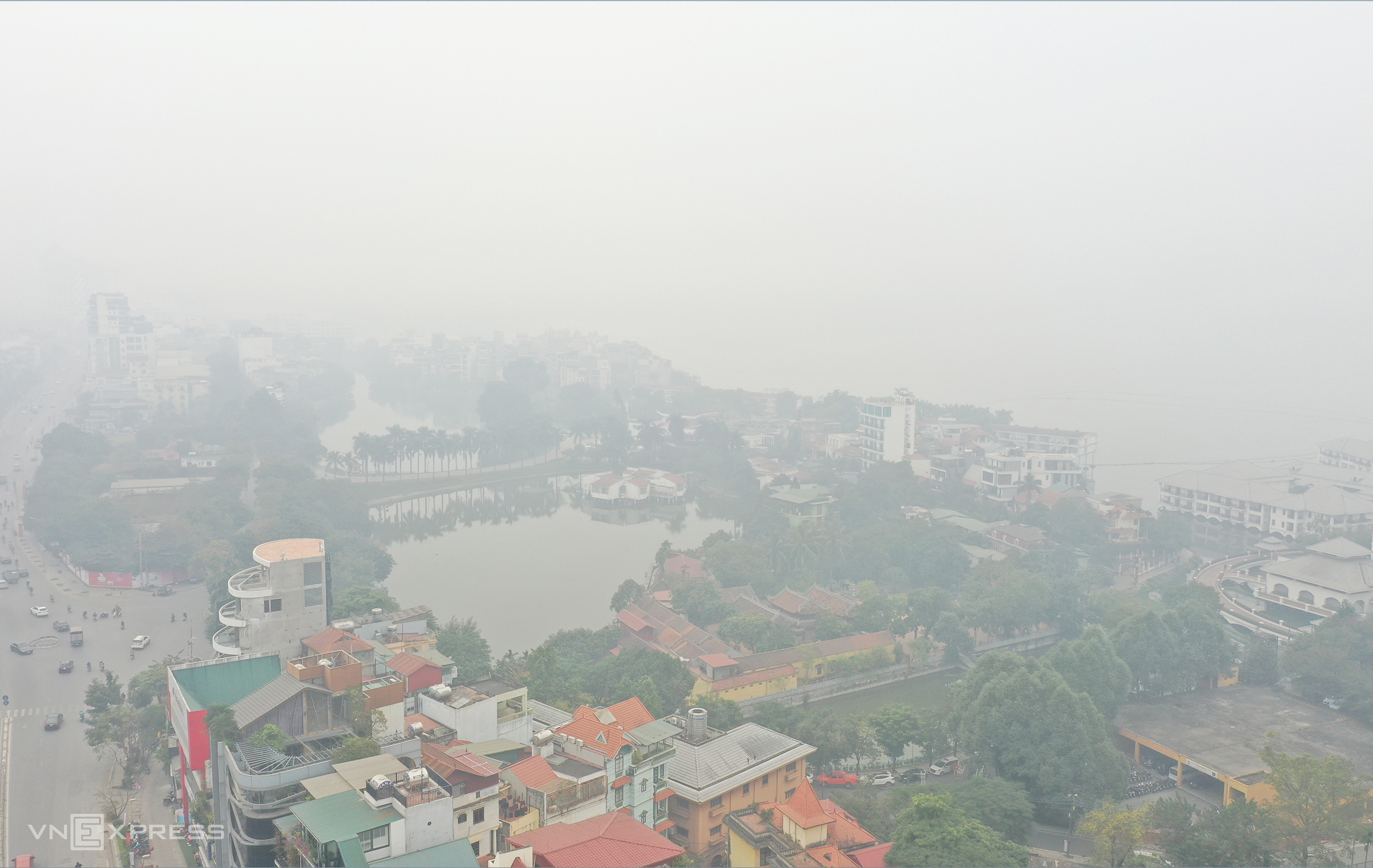Answer:
HPV, human papillomavirus, is primarily transmitted through skin-to-skin contact, especially during sexual activity. While air pollution and dust don't directly cause HPV infection, they may indirectly contribute to an increased risk.
A study of 39,746 HPV cases, aged 18-40, in China from 2014-2018, indicated a link between exposure to pollutants and HPV infection. Air pollution and dust affect respiratory, cardiovascular, nervous, and endocrine systems, weakening the immune system and hindering pathogen elimination.
Air pollution also contributes to common respiratory illnesses like sinusitis, sore throat, shortness of breath, asthma, bronchitis, pneumonia, and cardiovascular diseases like hypertension, heart failure, embolism, stroke, and heart attack. These conditions often require medication, potentially weakening the immune system, increasing inflammation, and making individuals more susceptible to HPV.
 |
A dusty area in Hanoi, photographed in 12/2023. Photo: Ngoc Thanh |
Fine particulate matter (PM2.5), ozone, formaldehyde, and chemicals in cigarette smoke, paint, and gas can irritate skin and mucous membranes. Minor injuries, cracks, or inflammation provide opportunities for HPV to enter and cause infection.
Over 200 HPV types exist, including high-risk types that cause genital warts and cancers: 6, 11, 16, 18, 31, 33, 35, 39, 45, 51, 52, 56, 58, 59, 66, and 68. In most cases, the virus clears naturally within 1-2 years. About 20% of infections persist, potentially leading to genital warts, cervical, vaginal, anal, penile, or oropharyngeal cancers.
Working in a dusty environment, you should protect yourself by wearing a mask, drinking plenty of water, avoiding sharing personal items, and practicing safe sex to prevent HPV and respiratory infections.
Vietnam offers two vaccines protecting against 9 HPV types that cause genital warts, dysplasia, precancerous lesions, and cancers like cervical, vulvar, vaginal, anal, and oropharyngeal cancers, for both genders.
Gardasil protects against 4 types (6, 11, 16, 18) and is recommended for girls and women aged 9-26. Gardasil 9 protects against 9 types (6, 11, 16, 18, 31, 33, 45, 52, and 58) and is recommended for males and females aged 9-45, with over 90% effectiveness.
As a 32-year-old male, you fall within the Gardasil 9 vaccination group. If you're interested, consult a vaccination center for specific advice.
Doctor Doan Thi Khanh Cham
Medical Manager, VNVC Vaccination System
Readers can submit vaccine-related questions for doctors to answer here.












